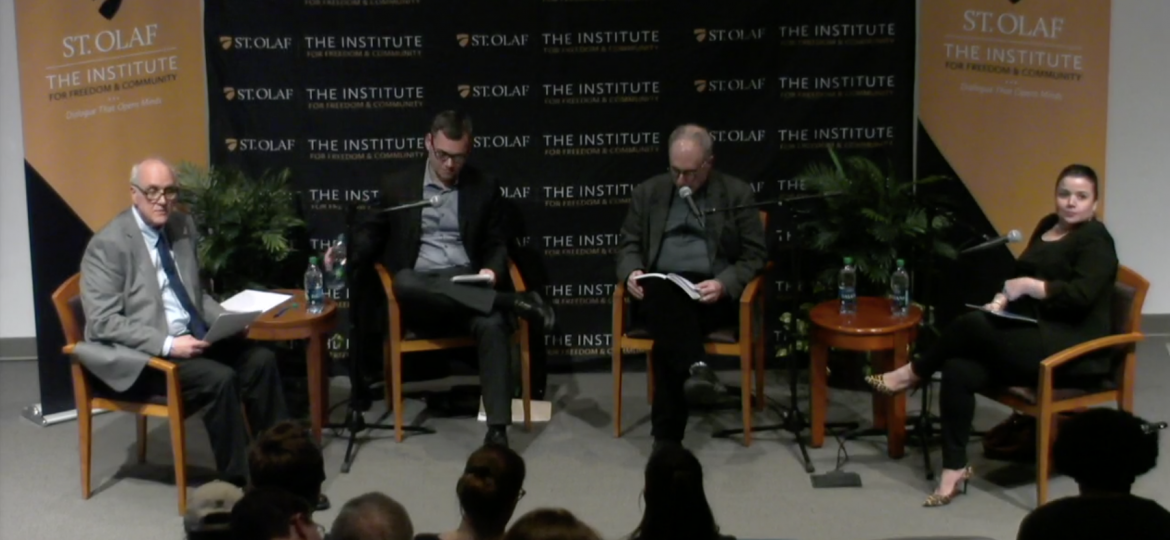
The Institute for Freedom and Community hosted a panel of scholars Tuesday, April 16 to discuss assimilation and incorporation in 21st century America. The event is the last of the Institute’s Spring 2019 series titled “Who is My Neighbor?”
The panel consisted of Peter Beinart, a political commentator for CNN and contributor to The Atlantic, John B. Judis, author and editor-at-large for political news site “Talking Points Memo” and Ana Navarro, a Republican strategist and political analyst for multiple television networks such as CNN, Telemundo and The View.
To start off the event, moderator and Morrison Family Director of the Institute Edmund Santurri reminded the audience that the goal and purpose of the Institute is to listen to a wide variety of perspectives and to generate conversations.
Santurri asked how much of American culture, customs and values immigrants should assimilate into in order to become fully incorporated in American society.
Beinart started the conversation by providing history and background as to why immigration has become so divisive. He said the increase in the foreign-born population has contributed to the “make America great again” ideals and romanticization of the era when the older generations were young and the foreign-born population was lower.
“We had a mindset that the U.S. was going to change the world, and the failure to contribute to the thought process of, if we can’t change the world, at least the world can’t change us,” Beinart said.
Beinart explained that assimilation should not be one or the other, it should be a combination of cultures.
“Assimilation does not mean that people have to absorb American culture and contribute nothing to it,” Beinart said.
In contrast, Judis believes that without a central American identity, welfare programs and a democracy will not be able to succeed.
“Assimilation does not mean that people have to absorb American culture and contribute nothing to it.” – Peter Beinart
“You grow up with your national identity and it has a very important role politically, you can’t have a democracy without seeing yourself as one nation,” Judis said. “And the proposed threat, both economically and culturally, of immigrants coming who speak foreign languages, who take jobs, politically, explains why people are so upset. This is seen as a threat.”
Navarro, an immigrant from Nicaragua, defined what assimilation means to her.
“Assimilation means establishing a new life from the beginning, it means understanding the rights and responsibilities to the U.S constitution and in doing so without fear,” Navarro said.
She agreed with Beinart in the sense that assimilation is less about forced sacrifice of one’s culture but rather a give and take. Navarro focused her argument on her definition of assimilation, stating that America is becoming more international, and the country has opportunities to make American great through a blend of cultures.
After the panelists finished speaking, students and community members were given an opportunity to ask them questions.
The Tuesday night event of the Spring series wrapped up its conversation on immigration and programming for the rest of the year.













